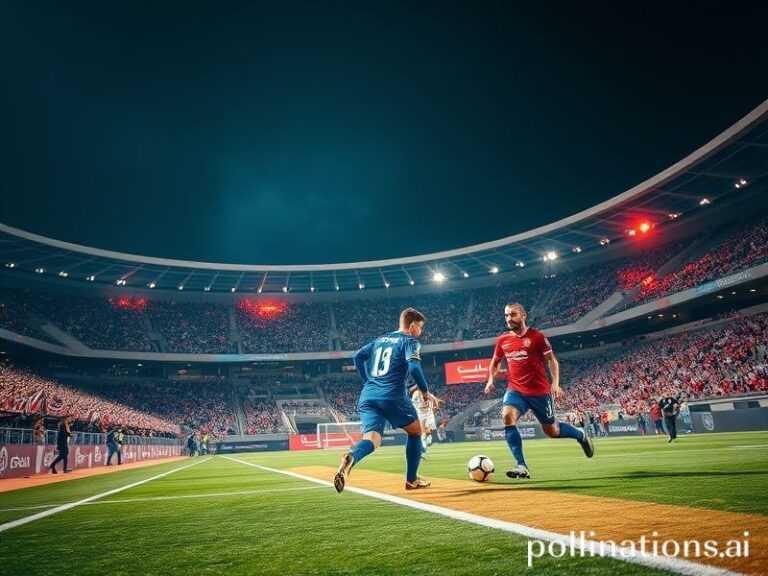Sarm Heslop’s Caribbean Vanishing: How Paradise Became the Perfect Alibi in Our Global Age of Invisible Women
**The Curious Case of Sarm Heslop: A Tale of Paradise, Privilege, and Perpetual Mystery**
In the grand theater of international disappearances, where tourists vanish with the regularity of flight delays, the case of Sarm Heslop has achieved that peculiar distinction of becoming simultaneously everywhere and nowhere at all. Three years after the 41-year-old British woman vanished from a luxury catamaran anchored off St. John in the US Virgin Islands, her story has metastasized into a modern parable about the price of wanderlust in an age when “getting away from it all” includes, apparently, due process.
The irony, of course, is delicious. Here we have a former flight attendant who’d traded the recycled air of commercial aviation for the salt-spray romance of Caribbean sailing, only to disappear from what should have been the safest of harbors. The American yacht, ominously named “Siren Song,” belonged to her boyfriend Ryan Bane—a man whose relationship with maritime law appears as flexible as his alibi. He reported her missing at 2:30 AM on March 8, 2021, then allegedly waited a leisurely four hours before notifying the Coast Guard, presumably after consulting his horoscope and finishing his morning espresso.
From London to Lagos, the case has become a Rorschach test for our collective anxieties about justice in paradise. British tabloids have feasted on the story with their usual subtlety—think hyenas at afternoon tea—while American authorities have demonstrated that bureaucratic inertia transcends all borders. The FBI eventually took interest, though their enthusiasm seems to have waned faster than a British tan in February. Meanwhile, Heslop’s parents have transformed their grief into a transatlantic campaign that makes one wonder if the special relationship between the UK and US extends to mutual incompetence in missing persons cases.
What makes this particular vanishing act so globally resonant is how perfectly it encapsulates our era’s absurdities. In a world where we can track a Domino’s pizza through seventeen time zones but can’t locate a woman on a 47-foot boat, the metaphor writes itself. The case has spawned Facebook groups from Southampton to Singapore, where amateur sleuths armed with Google Earth and too much time swap theories that range from the plausible to the positively QAnon-adjacent. It’s democracy in action, if democracy were administered by people who’ve watched too much Netflix and not enough CNN.
The broader implications stretch across our sun-bleached fantasies of escape. The Caribbean, that necklace of former colonies turned tax havens turned Instagram backdrops, has always specialized in making inconvenient things disappear—first indigenous populations, then colonial accountability, now apparently British citizens. The islands’ economy depends on visitors believing that paradise comes with a warranty, that nothing bad happens where the water is this blue and the rum this cheap. Heslop’s disappearance, and the subsequent shrug from authorities, suggests otherwise with the subtlety of a hurricane warning.
Internationally, the case has become a diplomatic hot potato, though admittedly one that’s been dropped, kicked under the table, and forgotten while everyone drinks their piña coladas. The British Foreign Office has made the appropriate noises about “ongoing concerns”—diplomatic speak for “we’ve sent three emails and called twice.” The US Virgin Islands police have demonstrated that island time applies to investigations too, moving with the urgency of a sloth on Ambien.
As another tourist season approaches and the yacht set prepares to drop anchor in the same crystalline waters, Heslop’s story serves as a particularly grim travel advisory. Not the official kind that warns about pickpockets and tap water, but the existential variety that whispers: here there be monsters, and they might just own boats. In the global village’s darker corners, paradise isn’t just a place—it’s a jurisdiction where questions go to die quiet, salt-water deaths.
The sea, as they say, keeps its secrets. In the Virgin Islands, it appears the police do too.







